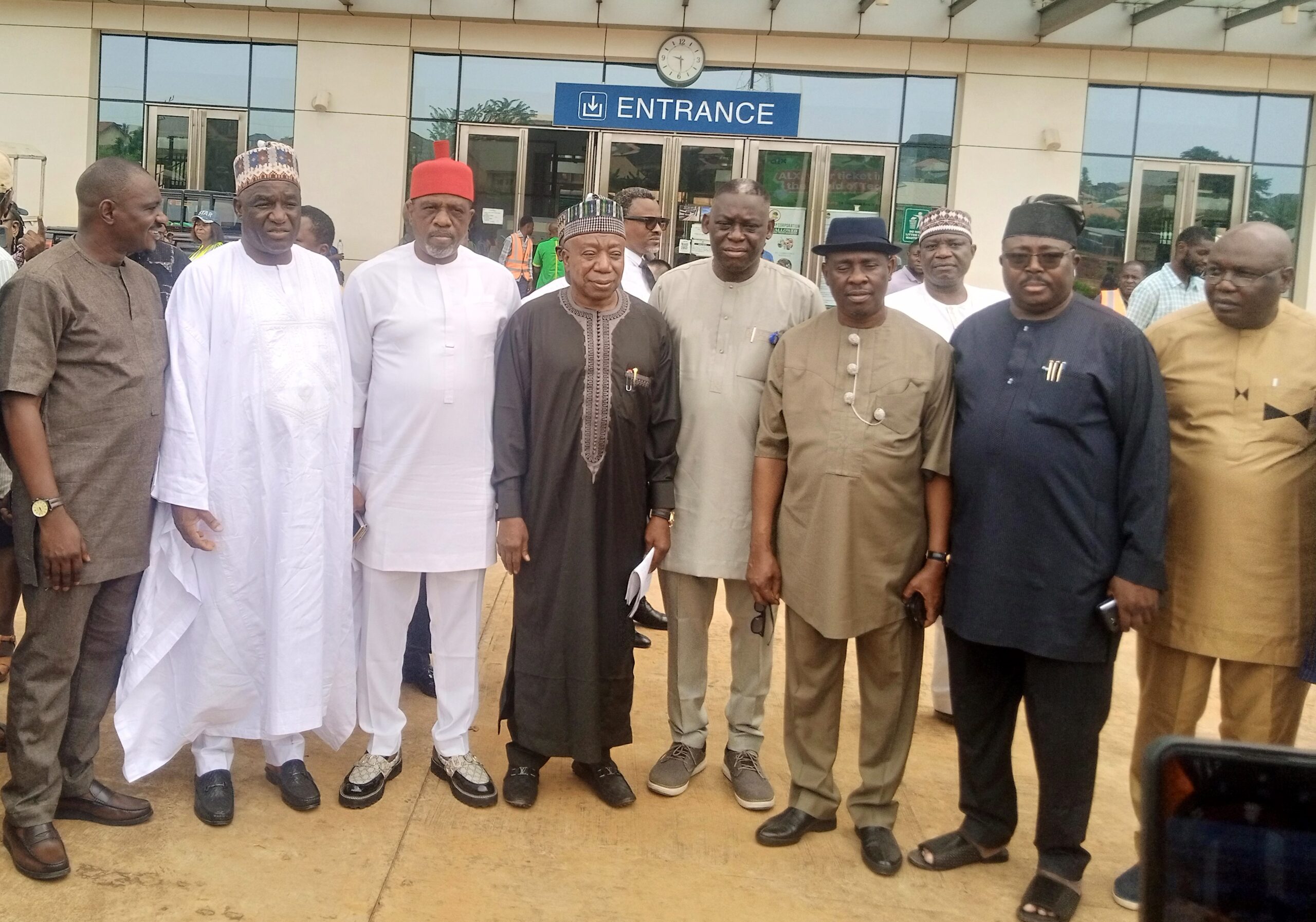The African Development Bank (AfDB) has approved $350million loan for the construction of a rail line between Kano-Maradi.
Declaring the National Assembly’s position after an oversight tour of the Nigerian Railway Corporation (NRC’s) Lagos-Ibadan standard gauge system, yesterday, the Chairman of the Senate Committee on Land Transport, Senator Adamu Aliero, said the Senate remained committed to ensuring that the NRC meets its mandate of modernization and rehabilitation of the national rail asset.
He restated the commitment of the National Assembly to the railway modernisation and rehabilitation under the Renewed Hope Agenda of President Bola Ahmed Tinubu.
The rehabilitation and modernization agenda was part of the 25 year Nigerian Railway Masterplan, which started under President Olusegun Obasanjo in 2000. The Railway Masterplan with railway rehabilitation and modernization components will run its full course next year.
Aliero said the oversight visit was the third by the committee to the NRC national asset across the country, as it had earlier visited the Abuja-Kaduna Train corridor and the Kano-Maradi corridor.
He said: “We have been to the Kano-Maradi-Dutse and Abuja-Kaduna corridors and this is the third one that the committee would be visiting in demonstration of our commitment to the NRC’s mandate by providing all the legislative support they needed to succeed.”’
Aliero said a supplementary budget of N530 billion had just been passed for the 2024 while the 2025 budget proposals is already been prepared, adding that the supplementary budget is meant to be sourced through counterpart funding where 85 percent is supposed to be sourced from either the China Exim Bank of International Finance Corporation (IFC) or Africa Development Bank (AfDB), for railway modernization and rehabilitation.
He confirmed that the AfDB only recently announced the approval of $350million loan for the construction of the Kano-Maradi rail line.
“Just last week we were at Gen. Yakubu Gowon’s birthday and the AfDB President told us that there a $350million has been approved for Nigeria, for the construction of rail line between Kano-Maradi, and equally the President of Nigeria was recently in China where he renegotiated the release of 85per cent counterpart funding for Ibadan to Kano by the Chinese government.”
He said the committee was impressed with what it has seen so far from Lagos to Abeokuta and from Abeokuta to Ibadan, adding that the committee is happy to note that a rail link has been achieved between Ebute Metta and Apapa Ports and freight services have resumed from Apapa to the Inland Cargo Depot (IDP) of Ibadan on the standard gauge and also on the Kano narrow gauge.
Aliero was accompanied by the Committee’s Vice Chairman Sen. Benson Friday Kombowei, Senators Sharafadeen Alli, Tony Nwoye, Kelvin Chukwu, Plang Dicket and the Committee’s Clerk, Solomon Jokotoye.
They were led round on the tour by the NRC Management led by the Acting Managing Director Ben Iloanusi, accompanied by a college of directors and other heads of units and management staff of the corporation.
On the issue of facilities being provided honestly we are very impressed with what we have seen, adding that the services being provided in the stations visited are comparable with anyone found anywhere in the world. “What we have seen here, can compete with what obtains in Europe and America or anywhere else around the world,” Aliero said.
“Even the ticketing system is so automated and it is difficult to commit any fraud. Service providers are contracted to handle tickets and the fees collected is shared on percentage between them and the Federal Government in line with the fiscal responsibility act.”
On the issue of technical services Aliero said the committee is very impressed with what they have seen. “We are at Kajola and we spent close to one hour there, we are highly impressed by the technical services being provided by CCECC or CRCC, and we are happy about the measures being put in place for technological transfer that even after they had gone, Nigerians would be able to maintain the locomotives and coaches and that soon, we would be able to assemble wagons here locally. “This is the kind of thing we want because it is a catalyst for job creation and the prerequisite maintenance culture would be imbibed by Nigerians. Nigerian engineers are as competent as the Chinese or other European Engineers, all you need is to give them on the job training to improve on their technical capacity,” Aliero said.
The Committee chairman however appealed to governors to support the Federal Government by providing accessibility to the train stations. According to him, complimentary services are expected to be provided by the state governors in order to ensure that Nigerians continue to enjoy dividends of democracy.
“I wish to call on the state governors to do their own bit by providing accessibility to railway stations. It is not desirable to have railway stations in your state where thousands of people and millions of tons of cargoes are being transported without good access roads to the train stations. State governments are to come in and complement what the federal government is doing, particularly on the issue of interconnectivity.”
Aliero said is committee’s assessment is that a lot has been achieved under the railway modernization and rehabilitation programme which started during President Olusegun Obasanjo’s time and delivered by President Muhammadu Buhari.
He expressed happiness that the Eastern corridor’s rehabilitation is also on course, beginning with the Port Harcourt to Aba.
He noted that negotiations are ongoing now on the possibility of linking Aba to Enugu-Markurdi-Jos-Bauchi-Gombe-Maiduguri, commending President Tinubu for initiating the projects, which in total is close to 1000 kilometers of rail line rehabilitation.
The Nation

